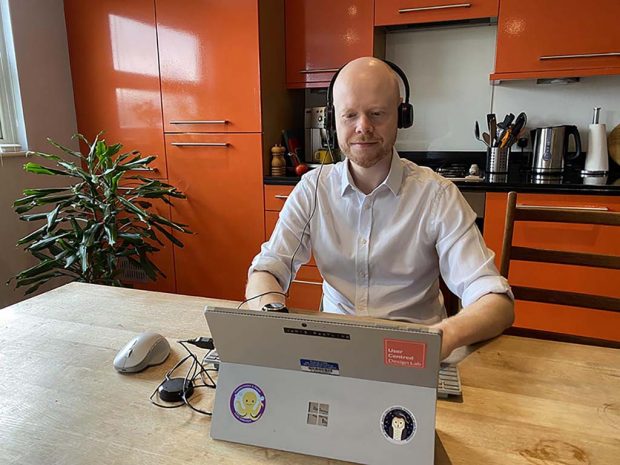
In recent weeks how we work in DfE has changed dramatically, but we’re as committed as ever to meeting our users' needs. Recruiting talented people to work in crucial roles continues.
The social distancing measures mean we now all work remotely. In response to this we’ve moved our whole recruitment process online. Conducting interviews this way is as new to most candidates as it is to most of us in DfE . Everyone needs to adjust and feel comfortable with this approach.
Here are some things you can do to make sure interviewees get the same high quality experience as they would face-to-face.
Plan ahead for a smooth interview
Software
Check which online video software your candidate prefers to use for the interview. Is it Skype, Zoom or Microsoft Teams? Or something else?
Accessibility
Ask your candidate if they have any accessibility needs and meet them.
Test the tech
Have a call with your candidate before the interview to make sure:
- you fully meet their accessibility needs
- your internet connections work
- you can hear them, and they can hear you
Book longer interview slots
Give more time to candidates to answer questions. They may be more anxious with the online approach. Don't forget there are often time delays during video calls, so account for that.
Lighting
Make sure the room you're interviewing from is well lit, and ask the candidate to do the same. This is crucial for people who lip read. Everyone on the video call needs to see who they’re talking to, and to gauge facial reactions.
Keep any tests anonymous
If you set the candidate a task, think ahead about maintaining their anonymity. You’ll need to remove any details from their work that may identify them. This will help minimise unconscious bias.
During the interview
Be clear
Give clear introductions and explain the online format of the interview - it’s a different approach and people need to adjust.
Signal when you’re about to speak
Physical cues like raising your hand or a thumbs up as you’re about to speak, will help the candidate to see who’s talking.
Repeat questions by typing them in the chat window
Once you’ve asked a question, type it out using the chat function in your video call software. This will help clarify the question in case the sound isn’t at 100%.
Mute your microphone
If you’re not speaking, and especially when you’re typing, make sure you’re on mute. You don’t want to distract your candidate with background noise. This is crucial if a candidate is using a hearing aid.
Reduce background noise
Minimise any other types of noise. Hearing aids can pick up sounds we don't all hear or notice, such as fridges and air conditioners.
After the interview and induction
Tell users what the next steps are
Clear and regular communication is vital after the interview. We’ve been open with our candidates and explained why the process may take more time than usual. For example, uploading interview results online takes longer.
Users can use their own device when they join
Our buildings are now closed so we’re letting our new starters work on their own device instead of having to collect one issued by DfE.
Move inductions online
To familiarise new colleagues with our culture, our work, and our people, we’ve set up online inductions using video calls, online training and virtual meetings.
Feedback from users so far
We’re learning as as we go, weaving our candidates' feedback back into the process. So far people have valued:
- the speed at which we’ve shifted all our recruitment online
- prompt and clear communication about how the new process will work and what’s involved
We’ve learned that contingency plans for when the tech fails during interviews is a priority. At the moment we’re trialing different fixes.
We’d love to hear how other people are conducting interviews right now. Get in touch if you have any recommendations or good practice advice, or if you’d like to ask us a question. You can also leave a comment below.
4 comments
Comment by Ruth Drysdale posted on
Also wear headsets to reduce background noise?
Comment by Ruth Drysdale posted on
Plus it can be better if you wear headsets to reduce echoing
Comment by rosieroff posted on
Yes! Thank you for the tip, Ruth. We've passed on to our recruitment team.
Comment by Andy Parker posted on
Interesting to see the suggestion of book longer sessions. I've done the opposite.
I found that shorter sessions are easier to maintain attention spans, and also force the team to focus on a single problem. It makes things another for the participant as well and doesn't risk zoom fatigue.